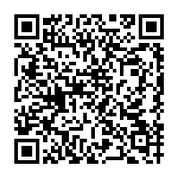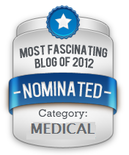Whether you struggle falling asleep at bedtime or wake up in the middle of the night and can’t get back to sleep, lack of sleep – known as insomnia – whether it lasts a few days or persists for a few weeks or longer, is a serious disorder. Sleeplessness robs your body of the rest it needs to reenergize you physically, mentally and emotionally.
Sleeplessness affects all age groups. According to the U.S. Department of Health and Human Services, about 60 million Americans suffer from insomnia each year. The National Sleep Foundation reports that sleeplessness affects nearly two-thirds of American adults at some point and stems most commonly from stress. Research shows stress is a common trigger for both short-term and acute insomnia. In fact, according to a survey conducted by the Better Sleep Council, sixty-five percent of Americans are losing sleep due to stress. Studies estimate that sleep deprivation currently costs U.S. businesses nearly $150 billion annually in absenteeism and lost productivity.
There is a wide range of stressors that contribute to sleeplessness: the stress of day-to-day living, finances, health concerns, depression and anxiety, to name a few. One typical form of insomnia occurs when people wake up during the night, realize they are wide awake when they should be sleeping, and then become anxious. Anxiety causes adrenaline to flood the system and adrenaline prompts the body into action – the opposite of what’s needed for effective sleep.
The occurrence of insomnia is believed to increase with age. More than half of older Americans have trouble sleeping and accept it as a normal part of aging. “Sleep problems in the elderly are not a normal part of aging,” says Dr. Julie Gammack, assistant professor of geriatrics at Saint Louis University and author of a review article published in the American Journal of Medicine. “It contributes to an increased risk of accidents, falls and chronic fatigue.”
Our children and teens are having many sleepless nights, too. Trouble falling asleep is their most common complaint. In a national survey on the sleep patterns of U.S. adolescents ages 11-17, the 2006 Sleep in America poll by the National Sleep Foundation found only 20% of adolescents were getting the recommended nine hours of sleep on school nights and 45% slept less than eight hours. Although most students in the survey knew they were not getting the sleep they needed, 90% of parents polled believed they were.
The inability to sleep at night is challenging enough, but then those who suffer from sleeplessness must grapple with the many resulting daytime symptoms of stress: not feeling refreshed or rested; poor concentration and focus; feeling tired, irritable, dull, apathetic and forgetful; a reduction in motor skills and coordination. Many of our nation’s adolescents are falling asleep in class or during homework and arriving late or missing school altogether because of oversleeping, which can result from irregular sleep patterns. When students don’t get sufficient rest they are unable to focus, their grades fall, and they become moody and down. If insomnia becomes chronic, it can lead to mental health problems such as depression, or misuse of alcohol and medications as they search for things to help them sleep.
Stress accumulates during the day and often we take it to bed with us. The body’s systems just won’t shut down, leading to difficulty in sleeping or staying asleep. Deep, restful sleep, which you enter from a coherent heart state (when the mind, heart and nervous system are in sync), can help you stay balanced and energized, leaving you more able to be effective in your day-to-day life.
Since 1991 HeartMath, internationally recognized for their scientifically validated stress solutions, has conducted research on the physiology of and relationship between the heart, stress, and emotions, as well as the effects of stress on health and performance. There are a variety of materials available from HeartMath on how to effectively deal with stress. They also offer a program for those needing relief from sleep problems. The emWave® Solution for Better Sleep Guide is a simple five-step Easy Plan program that works in conjunction with the emWave Personal Stress Reliever (www.emwave.com). The program helps you reset your body's natural rhythms so you can sleep deeply again and wake up feeling more refreshed.
Copyright © HeartMath. Since 1991 HeartMath has been dedicated to decoding the underlying mechanics of stress. HeartMath is internationally recognized for their solutions to transform the stress of change and uncertainty, and bring coherence and renewed energy into people’s lives. Research and clinical studies conducted by HeartMath have examined emotional physiology, heart-brain interactions, and the physiology of learning and performance. Through their research they have demonstrated the critical link between emotions, heart function, and cognitive performance. HeartMath’s work has been published in numerous peer-reviewed journals such as American Journal of Cardiology, Stress Medicine, and Preventive Cardiology, as well as business journals such as Harvard Business Review and Leadership Excellence. HeartMath’s organizational clients include NASA, BP, Duke University Health System, Stanford Business School, Redken, Kaiser Permanente, Boeing, and Cisco Systems, as well as dozens of school systems and thousands of health professionals around the world. To learn more about HeartMath, go to www.heartmath.com.

 RSS Feed
RSS Feed































